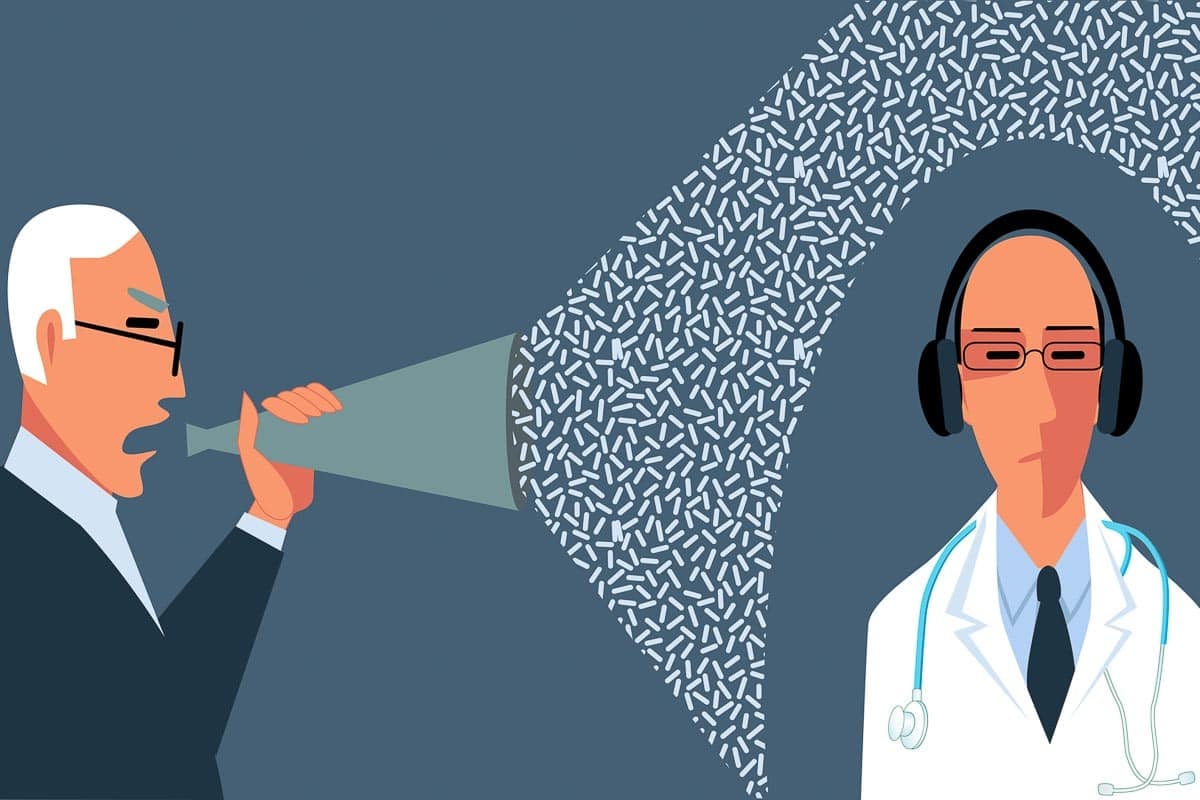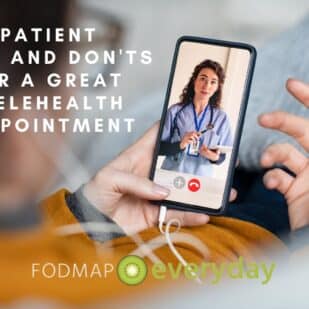What is medical gaslighting? Medical gaslighting refers to a situation in which healthcare providers dismiss or diminish the symptoms that an individual is experiencing, attempting to persuade them that the symptoms are attributed to an alternative cause or are mere figments of their imagination. Medical gaslighting can leave you questioning your own experience. And at worse can lead to undiagnosed serious illness.
Learn the signs and the ways in which you can take back control if this happens to you.
Medical Gaslighting Takes Advantage of the Vulnerable

During times of illness, when one is in a vulnerable state and lacks the energy to defend oneself, it is crucial to have a medical team that genuinely believes in your experience and refrains from employing psychological tactics to downplay or invalidate your lived illness experience. You know when you hurt. It is real.
More Women Than Men Experience Medical Gaslighting

The dismissal of medical complaints occurs more often for women, than men. This reinforcement of the long-standing misogynistic stereotype that portrays women as irrational and hysterical (a medical term long used in reference to women’s complaints), perpetuates a prejudice that has persisted for centuries.
Women of color are being ignored even more so, as are members of the LGBTQ+ community.
A study involving approximately 100 patients exposed a significant disparity in the treatment of women with pain compared to men in a hospital setting, despite both genders reporting similar pain scores. Shockingly (or maybe not), women were found to be less likely to receive pain medication, and even when medication was administered, they experienced longer waiting times before receiving it.
Signs of Gaslighting

How can you tell if you are experiencing medical gaslighting? Do any of the following ring true?
- Your healthcare provider is demeaning, condescending, and/or rude.
- You are being prevented from viewing and having copies of your own medical records.
- They refuse to order a test that you have inquired about, without offering any rationale.
- You are being dissuaded from researching on your own.
- Seeking a second opinion is discouraged.
- You feel pressure to buy supplements or programs sold by the medical provider.
- Your provider fails to provide appropriate treatment for your symptoms.
- They do not even want to discuss your symptoms, and/or downplay their significance.
- In short, you might be left feeling like you are going crazy for thinking what you were.
Real Life Examples of Medical Gaslighting

Unfortunately, it is all too easy to discover real-life experiences of gaslighting. Here are just a few:
- A patient presents to her doctor an extremely painful elbow, which occurred after falling off her bike. The doctor keeps telling her it’s her weight. Turns out she had a chipped bone in her arm.
- A mature woman has been complaining about her painful gut for decades, to several doctors. It takes her over 40 years and 6 doctors to receive a diagnosis of IBS – irritable bowel syndrome.
- A 2022 New York Times article recounted misdiagnoses that nearly cost people their lives due to delayed treatment. And recently, patients with long COVID are being ignored by doctors.
Red Flags

According to a Reader’s Digest article, here are phrases you might hear, that are immediate red flags:
- It’s all in your head.”
- “You’re overreacting.”
- “Why are you getting so emotional about this?”
- “It’s not as big of a deal as you are making it.”
- “We never talked about that before.” (When you know you have.)
- “You’re being too sensitive.”
- “You’re not that sick.”
- “I know what’s best for you, better than you do.”
- “Don’t you trust me?”
How Can You Prevent Gaslighting?

When you are ill and in pain, you want to be able to go to a medical professional and have them take care of you, but you have to also be prepared to advocate for yourself.
The first hard step is explaining that you do not feel like you have been heard, and you would like an appointment to discuss your needs.
If a child is involved, the adults need to step up. Children cannot always voice their pains well.
Practice Voicing Your Needs

Practice what you want to say. Here are some conversation starters:
“Let’s take a moment to pause here because it seems there’s a miscommunication. It appears that my message is not coming across clearly. Allow me to restate my concerns.”
Alternatively, when seeking assistance with persistent symptoms, you could consider saying: “I’ve been experiencing these symptoms for the past three months. Can we work together to determine the cause? What steps can we take collaboratively to investigate and find a resolution?”
Hopefully you have kept records of meetings and medical issues; if you have not, start now.
Have Others Help

Bring a friend or family member, who understands your goal, to your medical appointments. They can take notes, ask questions, and support your inquiry.
Switch Medical Providers

There are studies that suggest that over 12 million patients are misdiagnosed in the US every year. Don’t let this be you. You are in charge of your medical care. Not every doctor or medical advisor will work for everyone.
Seek Out a Supportive Community

Do not give up finding a doctor who will listen to you and help you. In addition, take the time to find a supportive community experiencing the same things that you are. Knowing you are not alone can go a long way to feeling validated.
One caution: many of these communities, whether they are in person, in Facebook groups, Reddit threads or similar, are not moderated by medical professionals. Please take care not to take medical advice from laypeople.
Appeal To Higher Authorities

If you are dealing with a medical group or a hospital, and your doctor has been an issue for you and you are not getting anywhere yourself, you can always go up the ladder and complain and/or ask for another doctor. There are very often patient advocates who will speak with you – and their job is to listen to you!
It’s Not In Your Head

There are doctors out there who do believe that you know your body best, and they want to help you with the issues that you are facing. They take a team approach and want nothing more than to help you get better. Don’t give up! There is help out there. Advocate for yourself and find a compassionate medical team. You are worth it.
Have IBS? Top Reasons To Work With A Dietitian

You have probably heard from us and others that working with a Registered Dietitian (RD, RDN, or the equivalent in your country) is recommended when undertaking the low FODMAP diet. We know that this might be out-of-pocket for many, and that it might seem unattainable financially and/or superfluous in general. Read Have IBS? Top Reasons To Work With A Dietitian
The Role Of The Dietitian vs. The Gastroenterologist

This article explains the The Role Of The Dietitian vs. The Gastroenterologist. They do not perform the same functions, yet both are key members of your medical team.
Are you suffering from stomach and intestinal issues? Have you been told by your primary care physician that you need to be seen by a gastroenterologist (GI)? Read The Role Of The Dietitian vs. The Gastroenterologist
How to Choose a Dietitian

Searching the Internet for nutrition advice can be overwhelming, confusing and full of contradictions.
If you are looking for dietary guidance to manage IBS or implement the low FODMAP diet, it’s a smart idea to work with a Registered Dietitian, but how do you go about finding the right one for you? Read How to Choose a Dietitian
Dietitians & Nutritionists: What’s the Difference?

What are the differences between a dietitian and a nutritionist? This is a common question and so often these titles are used interchangeably. It is important to understand the difference especially when selecting a FODMAP expert to seek professional advice and assistance navigating the low FODMAP diet. Read Dietitians & Nutritionists: What’s the Difference?







